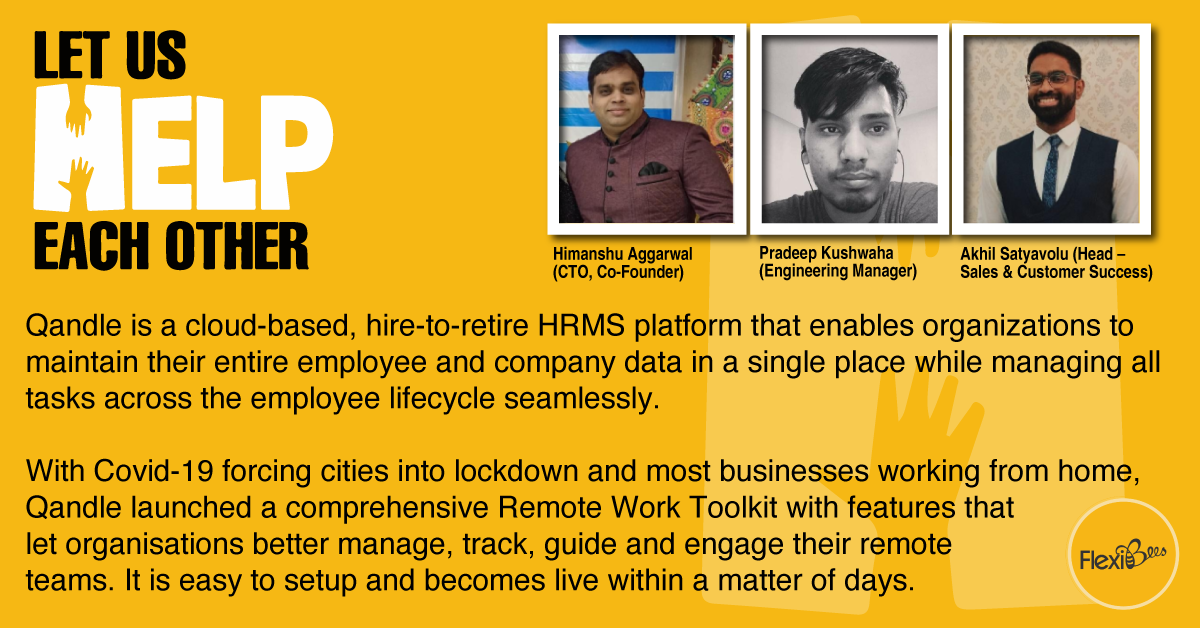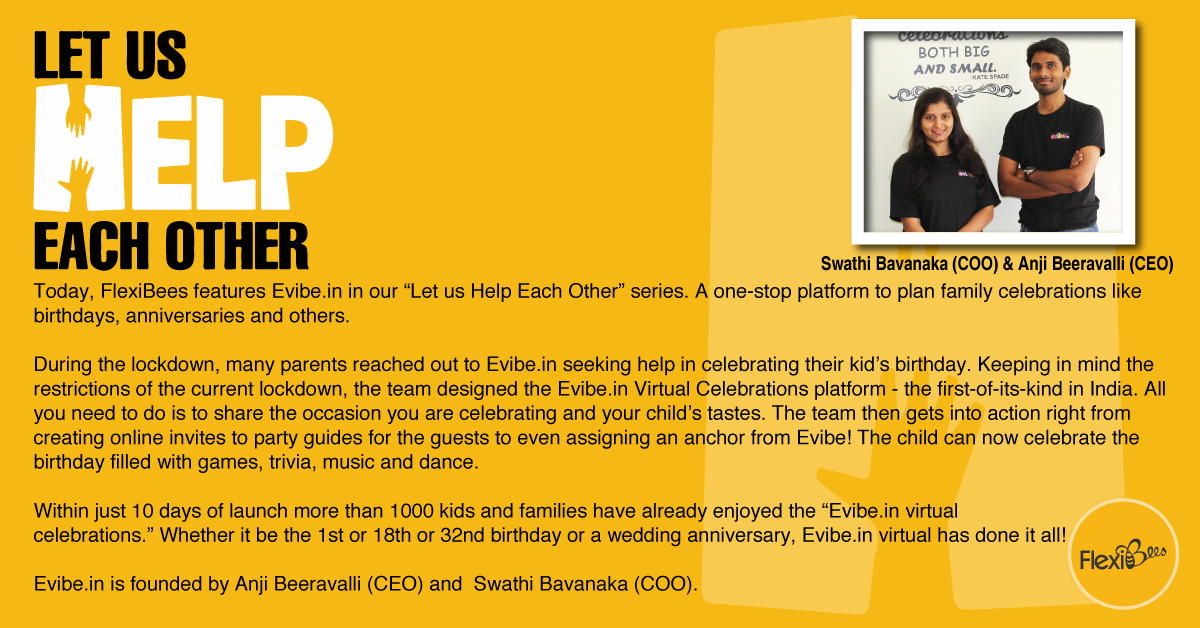Cash is at the heart of every business, whether borrowed or earned. The last year taught us to be more mindful of it, to save some in the bank for a rainy day and hopefully most of us are not caught unawares by the second wave of the pandemic.
But what about growth? How can we grow in this environment, while still keeping our balance sheets cash-light? We decided to put down a few things that we at FlexiBees are doing, and which we thought might help other businesses such as ours.
Continue being relevant
With our business heavily dependent on how other businesses were doing, when the pandemic hit last year and demand for many start-ups and even larger companies vanished overnight, it did occur to us to shut down our entire marketing work-stream.
But we are glad we didn’t. In fact we went the other way around, we figured out how we could be of use during this time, which was in the dual areas of bringing our expertise in remote working to the many companies struggling during that time, and in helping showcase the many smaller businesses who were pivoting with lightning speed into new products, services, business models, etc. It kept us relevant and gave us satisfaction, and very soon when the more ‘pandemic-friendly’ businesses like IT, EdTech, Ecomm started taking off, we started getting business from them.
This year too, we have decided to support the ecosystem in any which way we can, through our marketing channels. Continuing to be visible and vocal might seem like an additional spend when not much revenue is coming in, but it’s an investment for when opportunities do open up, to become one of the first ports of call.
Explore new routes
While there was not much we could do last year, businesses opened when they did, and the ones who needed talent found their way to us, this year is different. We are actively increasing our effort towards international markets where we already have some presence in.
Besides, the start-up ecosystem is rife with examples of companies that changed their target markets, business models, GTM, and products/services to be able to seize opportunities that the pandemic threw up or just survive.

Qandle launched a Remote Work Toolkit that let organizations better manage, track and guide their remote teams within a matter of a few weeks
Evibe designed their Virtual Celebration platforms within weeks and had 1000 families enjoy its services within 10 days of launch!
Do not cut-off all spends but keep a strong eye on it
This is especially true for this year, as for many businesses, the demand, while muted, is not zero. If you have the cash for advertising spends, do keep them on. Advertising by design will attract only those who need it. However, do keep a strong eye on it, on KPIs such as CPMs, CPCs and CPLs that will be early indicators of how the business is likely to turn in the next few weeks.
Redesign existing products/services in line with customer needs
While we didn’t change much, since our offering of flexible and contractual talent was already in demand once the worst of the pandemic got over last year, we did make some tweaks to it. Many businesses were coming to us to hire contractual talent for the first time ever and even after having experimented with work-from-home during the pandemic, some were on the fence regarding remote-work, so we introduced trials for them, to help them take the leap. Keeping your ear close to the ground to make your offering as customer-centric as possible is essential at all times, but is the difference between life and death during a time such as this.
Hire lean
The pandemic has brought ‘lean’ into the limelight, whether it is for cash-flow purposes, or to be agile and experimentative. Especially if it is a new route you are exploring, hedge your risks by hiring talent for a shorter duration to try the route out. Similarly, hiring good part-time talent during this time helps in keeping cash-flows in check while also being able to go after new opportunities.
Provide disproportionate customer support
Last year, as the pandemic hit our shores, with demand disappearing overnight for several of our clients, they in turn came to us to pause or terminate their talent contracts with us. To a lesser extent, the same is repeating this year too. Last year, as well as this year, we decided to extend and put in place protocols to enable all possible support to both our ends: we helped businesses pause contracts without notice periods, fully understanding the unprecedented nature of what they were undergoing, and helped talent transition out of their roles, hand-holding and reassuring them.
This is not an immediate growth strategy but one that eventually paid out, when demand started returning, alot of our clients unpaused their contracts and came to us for repeat roles as well.
Cultivate a culture of empathy within the organisation
This again is a mid to long term growth strategy. No organisation can survive without people, and during this time, it is paramount to give people the time they need to heal. Last year, since our team of all women, many of them mothers, were hard hit by the increased work-load during the pandemic, we gave them the option to take some time off in a week. This year, the need for compassion in the workplace has further gone up, and like many other organisations, we are completely in support and even encouraging our people to take offs when needed for themselves and their families. That’s the least we can do. The culture of flexibility, individual freedom and accountability that is deeply embedded in our fabric, saw us through a company wide pay-cut during the worst months of the pandemic last year, and we hope will continue to help us retain the excellent team that we have built ground up.
Start-ups and small businesses are the worst hit during such crises, but being lean, hungry, and close to their customers, they also have the unique advantage of being able to move and adapt quickly to new opportunities. May you find the routes to growth in these unprecedented times. We are rooting for you.




